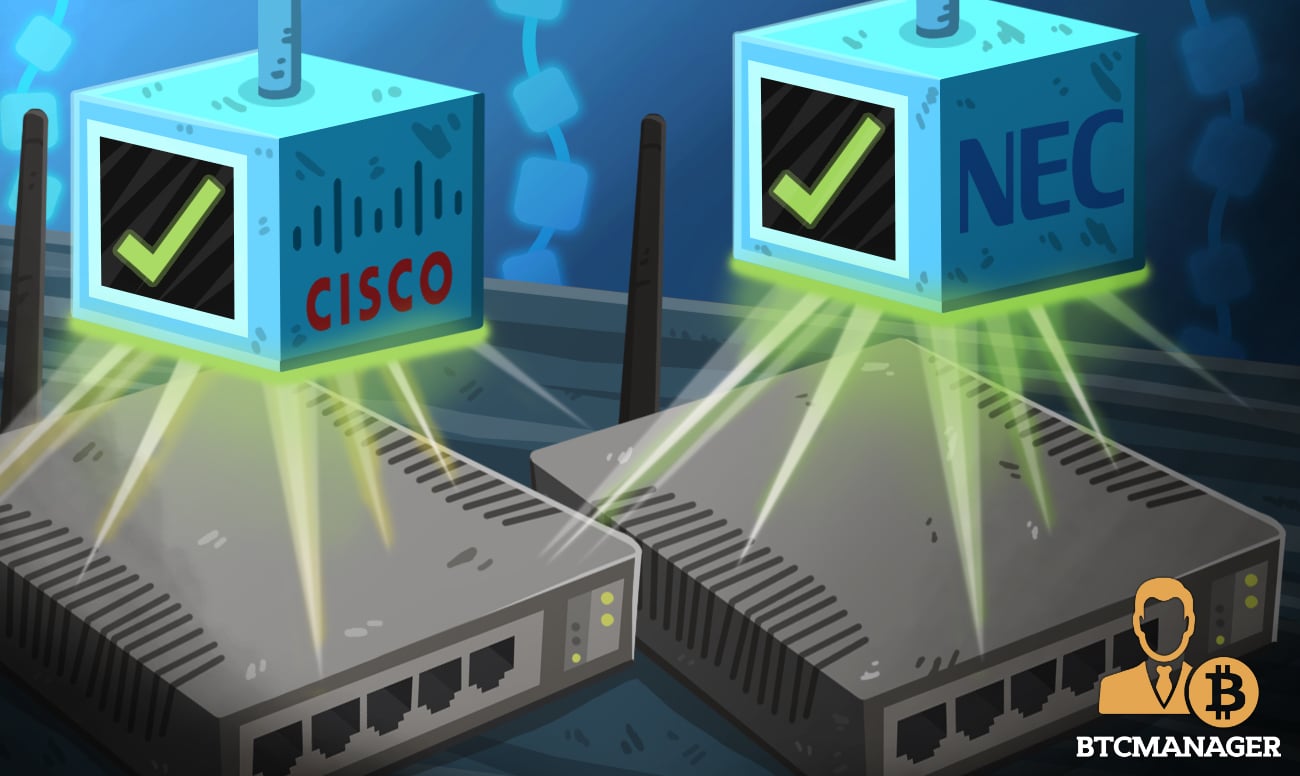Cisco Partners with Japanese IT Firm to Track Goods on a Blockchain

Cisco and Japan’s NEC Corporation have entered a strategic partnership to track network equipment produced by the former on a permissioned blockchain. As per Ledger Insights, growing cybersecurity concerns are the driving force behind this initiative. This is an addition to a number of Fortune 500 companies using blockchain to track goods and verify authenticity, February 20, 2020.
Corporate Blockchains See Sustained Traction
Cybersecurity has become a top concern for companies across the corporate spectrum. American IT behemoth Cisco, which grew thanks to its network hardware and telecom divisions, has built a blockchain to track its equipment along with NEC Corporation.
The two companies will use in-house technologies to ensure the equipment procured by them is authentic. Authenticity is established with the help of individual IDs and cryptographically hashed signatures. NEC has its own proprietary “tamper protection” software to check for any changes made to the device after it’s been manufactured.
Sometimes, a piece of equipment leaves the factory in perfect condition, but the hardware is tweaked or manipulated before it is installed. This is extremely risky for equipment such as security cameras installed in sensitive locations. Tracking manufacturing status and changes made to hardware over an immutable ledger shared between two parties helps keep the integrity of network equipment intact.
Broader Adoption of Corporate Ledgers
From FMCG giant Nestle to Amazon, the first trillion-dollar company, blockchain has seen breakthrough adoption from corporate entities in the last year.
Cisco and NEC Corporation’s permissioned blockchain will enable these two companies to keep vulnerable equipment from being compromised by malicious actors. The utility of distributed ledgers lies in this use case: giving stakeholders the ability to share information that is immutable over a single database.
Permissionless blockchain projects like Ontology have been growing their service offerings to cater to corporations, but it remains to be seen if companies will choose to build their own blockchains with shareholders or use a public blockchain.
If historical trends are to continue in 2020, we will see a lot more companies setting up distributed ledger’s with those they do business with. Blockchain have utility as permissioned ledgers, so long as all necessary stakeholders have access to the information on these chains.












